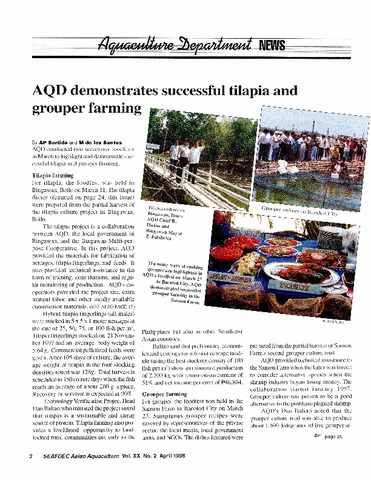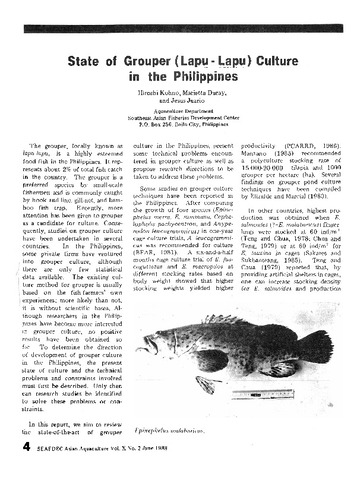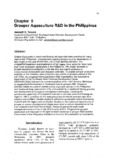| dc.contributor.author | Peter Dennis, Lachlan | |
| dc.contributor.author | Nocillado, Josephine | |
| dc.contributor.author | Palma, Peter | |
| dc.contributor.author | Amagai, Takafumi | |
| dc.contributor.author | Soyano, Kiyoshi | |
| dc.contributor.author | Elizur, Abigail | |
| dc.date.accessioned | 2020-07-14T02:40:32Z | |
| dc.date.available | 2020-07-14T02:40:32Z | |
| dc.date.issued | 2020-07-13 | |
| dc.identifier.citation | Peter Dennis, L., Nocillado, J., Palma, P., Amagai, T., Soyano, K., & Elizur, A. (2020). Development of a giant grouper Luteinizing Hormone (LH) Enzyme-Linked Immunosorbent Assay (ELISA) and its use towards understanding sexual development in grouper. General and Comparative Endocrinology, 296, 113542. | en |
| dc.identifier.issn | 0016-6480 | |
| dc.identifier.uri | http://hdl.handle.net/10862/5901 | |
| dc.description.abstract | A recombinant giant grouper Luteinizing Hormone (LH) consisting of tethered beta and alpha subunits was produced in a yeast expression system. The giant grouper LH β-subunit was also produced and administered to rabbits for antibody development. The recombinant LH and its antibody were used to develop an Enzyme Linked Immunosorbent Assay (ELISA). This ELISA enabled detection of plasma LH levels in groupers at a sensitivity between 391 pg/ml and 200 ng/ml. Different species of grouper were assayed with this ELISA in conjunction with gonadal histology and body condition data to identify links between circulating LH levels and sexual development. We found that circulating levels of LH decreased when oocytes began to degenerate, and sex-transition gonadal characteristics were apparent when LH levels decreased further. When circulating LH levels were related to body condition (body weight/ body length), transitioning-stage fish had relatively high body condition but low plasma LH levels. This observation was similar across multiple grouper species and indicates that plasma LH levels combined with body condition may be a marker for early male identification in the protogynous hermaphrodite groupers. | en |
| dc.description.sponsorship | This project was funded by the Australian Centre for International Agricultural Research (ACIAR) under project FIS 2012 101: Developing technologies for giant grouper (Epinephelus lanceolatus) aquaculture in Vietnam, the Philippines and Australia (SEAFDEC/AQD study code: 6149-T-RD-ACIAR4). LD was a recipient of the University of the Sunshine Coast, Australia, APA Ph.D. scholarship, PP was an ACIAR John Allwright Fellow. Samples were graciously provided by Dr. Kiyoshi Soyano’s lab in Nagasaki, Dr. Evelyn Grace de Jesus-Ayson of SEAFDEC/ AQD, Tigbauan, Philippines, Dr. Stewart Fielder, Port Stephens Fisheries Centre: NSWDPI, Dr. Richard Knuckey from The Company One, Cairns, Australia, and Mr. Josh McNally from Ecomarine, Noosa, Australia. | en |
| dc.language.iso | en | en |
| dc.publisher | Elsevier | en |
| dc.subject | luteinizing hormone | en |
| dc.subject | groupers | en |
| dc.subject | LH | en |
| dc.subject | Reproductive biology | en |
| dc.title | Development of a giant grouper Luteinizing Hormone (LH) Enzyme-Linked Immunosorbent Assay (ELISA) and its use towards understanding sexual development in grouper | en |
| dc.type | Article | en |
| dc.citation.volume | 296 | |
| dc.citation.spage | 113542 | |
| dc.citation.journalTitle | General and Comparative Endocrinology | en |
| dc.subject.asfa | reproduction | en |
| dc.subject.asfa | ELISA | en |
| dc.identifier.doi | 10.1016/j.ygcen.2020.113542 | |



